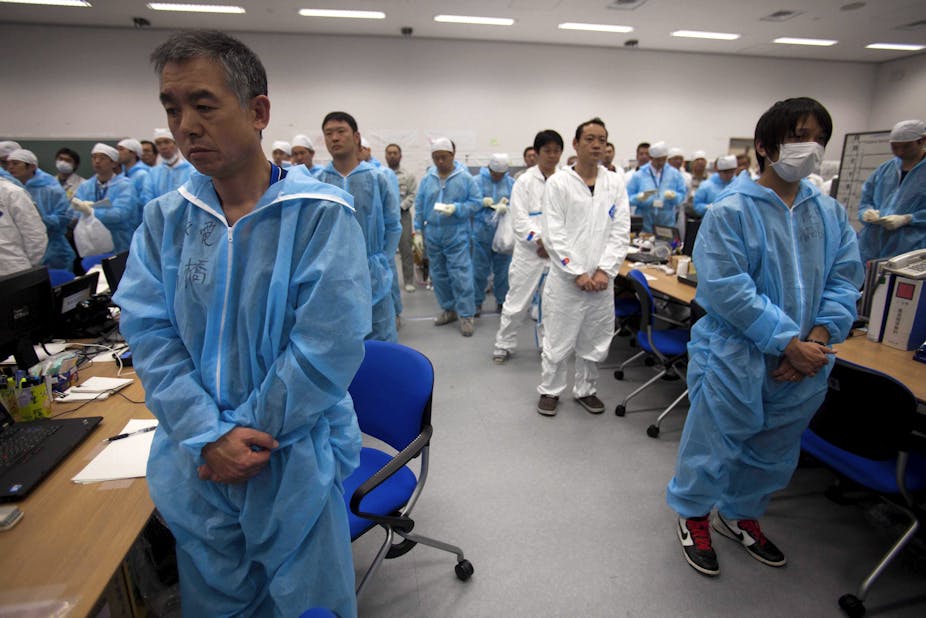A study of nearly 10,000 residents in a town located 23 kilometres north of the Fukushima Daiichi nuclear plant has found low levels of radiation exposure.
In a research letter published in the Journal of the American Medical Association, Masaharu Tsubokura of the University of Tokyo said exposure levels were low in most adults and children tested from the town of Minamisoma, and much lower than those reported in studies years after the Chernobyl incident.
“To our knowledge this is the first report on internal exposure to cesium radiation after the Fukushima Daichi nuclear plant incident,” Dr Tsubokura and his colleagues wrote.
The study involved a voluntary screening program for levels of cesium, known to be representative of total internal radiation exposure, over a six-month period. The researchers noted that the screening started six months after the nuclear power plant disaster, and therefore higher exposure levels might have been detected earlier.
A year and a half on from the Fukushima Daiichi nuclear plant disaster, there remains a lack of information on what radiation exposures people can expect from locations surrounding the plant said Tilman Ruff, Associate Professor in the Disease Prevention & Health Promotion Unit of the Nossal Institute for Global Health at the University of Melbourne.
“I welcome any studies that look at internal exposure because it’s harder to do, less often done, and there’s very little data available publicly,” Professor Ruff said.
Professor Ruff said the news would have been better had the study been done in an area of higher exposure to fallout from the disaster.
“Minamisoma is not one of the places that experienced the highest levels of fallout so in fact it might not be telling us as much as we might hope.”
The study comes as a second group of Japanese researchers writing for the JAMA reported ongoing psychological distress among the workers at Fukushima nuclear power plants.
The researchers found psychological distress and post traumatic stress disorder were common in plant workers 2 to 3 months after the disaster. The study included 1,495 workers across the Fukushima and Daiichi plants. Almost half of the Daiichi plant workers had significantly higher rates of psychological distress.
The study also found discrimination or slurs contributed to the stress, with workers being targeted as a result of criticism over their employer’s approach to handling the disaster.

